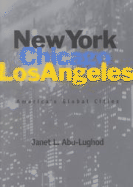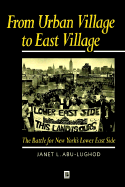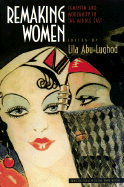In this important study, Abu-Lughod
presents a groundbreaking reinterpretation of global
economic evolution, arguing that the modern world
economy had its roots not in the sixteenth century, as
is widely supposed, but in the thirteenth century
economy--a system far different from the European world
system which emerged from it. Using the city as the
working unit of analysis, Before European Hegemony
provides a new paradigm for understanding the evolution
of world systems by tracing the rise of a system that,
at its peak in the opening decades of the 14th century,
involved a vast region stretching between northwest
Europe and China. Writing in a clear and lively style,
Abu-Lughod explores the reasons for the eventual decay
of this system and the rise of European hegemony.
New York,
Chicago, Los Angeles: America's Global Cities

About this title: New York, Chicago, and Los
Angeles -- for all their differences, they are
quintessentially American cities. They are also among
the handful of cities on the earth that can be called
"global." Janet L. Abu-Lughod's book is the first to
compare them in an ambitious in-depth study that takes
into account each city's unique history, following their
development from their earliest days to their current
status as players on the global stage. Unlike most other
global cities, New York, Chicago, and Los Angeles all
quickly grew from the nearly blank slate of the American
landscape to become important beyond the nation's
borders early in their histories. As a result, Abu-Lughod
is able to show the overall effect of globalization on
each city's development. While all three are critical to
global economics and the spread of American culture to
the farthest reaches of an increasingly interlinked
world, their influence reflects their individual
histories and personalities. In a masterful synthesis of
historical and economic information, Abu-Lughod
clarifies how each city's global role is -- and will be
-- affected by geography, ethnicity of population,
political institutions, and tradition of governance. New
York, Chicago, and Los Angeles are more than global
players: they are also home to forty million people.
Abu-Lughod closes the book with a set of vignettes that
captures the cities' differences as perceived by one who
has lived in them. Bringing together the local and the
global in thoroughly unexpected and enlightening ways,
this important volume offers fascinating insight into
these vital urban centers.
Sociology for the
Twenty-First Century: Continuities and Cutting Edges

About this title: These original essays by
eminent sociologists probe issues of central importance
to North American societies in the twenty-first century.
The chapters in part 1 revise theory and methods to
comprehend the economic and political institutions that
increasingly dominate the lives of individuals and
groups, arguing that these giants must be made more
democratically accountable. Part 2 explores the social
effects that growing globalization, transnationalization,
and information technologies are having on politics,
economics, and the environment. The final chapters
compare how new immigrants from increasingly diversified
backgrounds are being absorbed in Canada and the United
States, exploring the impact that immigrants are having
on preexisting ethnic minorities and on the dominant
political culture. While it is a major attempt to
refocus the discipline of sociology, the book's clear,
nontechnical style and its attention to issues of
central concern to all citizens make it also highly
accessible to nonspecialists. Contributors are Janet L.
Abu-Lughod, Tomas Almaguer, Giovanni Arrighi, Gilles
Bourque, Randall Collins, Jules Duchastel, Joe Feagin,
Harriet Friedmann, Pierre Hamel, Moon-Kie Jung, Joel
Levine, Henri Lustiger-Thaler, Louis Maheu, Joel
Perlmann, Saskia Sassen, Gideon Sjoberg, Dorothy Smith,
Roger Waldinger, and Barry Wellman.
From Urban
Village to East Village: The Battle for New York's Lower
East Side

Synopsis not available.
Remaking Women:
Feminism and Modernity in the Middle East
by Janet Abu-Lughod and Lila Abu-Lughod, editors.

About this title: The last two decades have
witnessed an extraordinary burst of energy and richness
in Middle East women's studies, and the contributors to
this volume exemplify the vitality of this new thinking.
They take up issues of concern to historians and social
thinkers working on the postcolonial world.